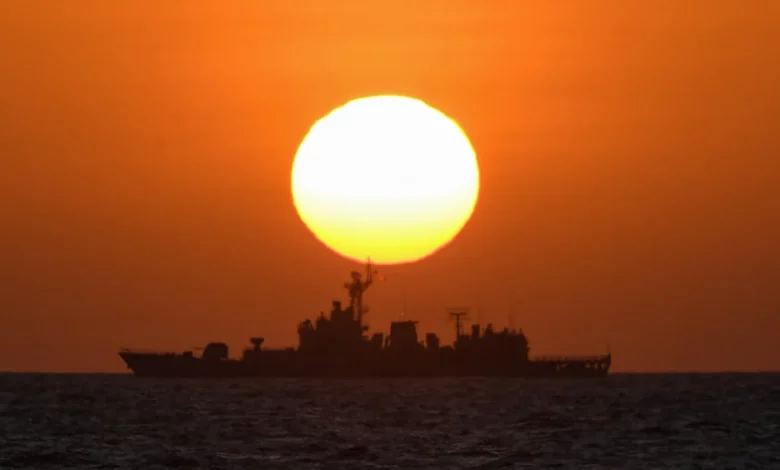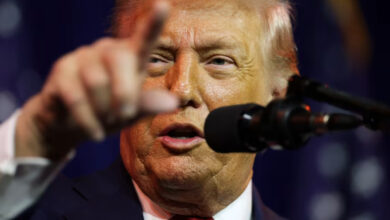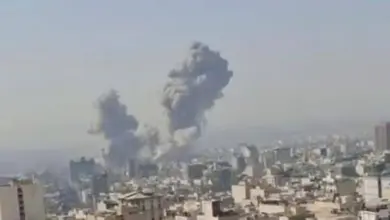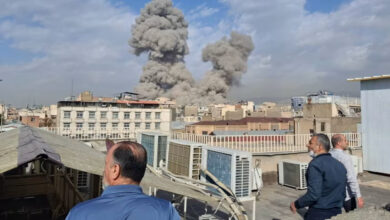
The drills near the Gulf of Oman, involving more than 20 ships from the three countries, are “aimed at strengthening maritime cooperation and safeguarding regional peace and stability,” a statement from the Chinese Defense Ministry said, echoing similar language from Iran and Russia.
China’s navy sent a guided-missile destroyer and guided-missile frigate to the exercises, Russia dispatched the cruiser Varyag from its Pacific Fleet, and Iran contributed a range of vessels, including frigates and fast-attack boats, according to state-run media.
Scheduled to run through Friday, the exercises are in their sixth incarnation since 2018, Russian state news agency TASS reported.
But they coincide with the most turbulent time the region has seen over those six years, noted Iran’s official Islamic Republic News Agency.
“The joint exercise comes at a time of heightened tensions in the region,” it said, citing the Israel-Hamas war in Gaza, “which has threatened to spiral into a wider regional conflict.”
The Gaza conflict has already spread to international waters in the Red Sea and Gulf of Aden, where Iran-backed Houthi rebels in Yemen have fired missiles and drones at international military and commercial vessels.
Iranian Rear Adm. Amrollah Nozari said the exercises cover 17,000 square kilometers (6,500 square miles) of sea in an area of strategic importance to the whole world.
“This area includes three of the world’s five strategic straits, located in the northern Indian Ocean region, which is a crucial hub for energy and trade traffic globally,” Nozari is quoted as saying by Iran’s semi-official Tasnim News Agency.
The Iranian report also noted that the nation’s navy was introducing new vessels to this year’s exercises, “equipped for extended ocean missions” and armed with advanced domestically developed weaponry, though it did not specify what those weapons were.
Iran is a key supporter of both Hamas in Gaza and the Houthi rebels. Many of the munitions used by both groups are believed to come from Tehran.
Iranian munitions, including its Shahed aerial drones, have also become an important part of Russia’s arsenal in its war on Ukraine.
Meanwhile, ties between China and Russia have deepened following the Kremlin’s invasion of Ukraine in 2022, sparking deep suspicion in the West, including over concerns about Beijing’s position as Moscow’s key economic lifeline.




